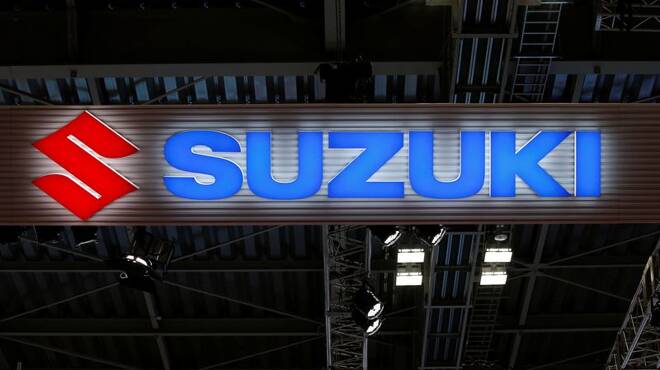Advertisement
Advertisement
Japan’s Suzuki to invest $35 billion through 2030 in EVs
By:
TOKYO (Reuters) - Japan's Suzuki Motor Corp said on Thursday it will invest a total of 4.5 trillion yen ($34.79 billion) in research and development as well as in capital expenditure as part of its growth strategy through fiscal 2030.
By Satoshi Sugiyama
TOKYO (Reuters) -Suzuki Motor Corp will invest 4.5 trillion yen ($34.8 billion) through fiscal 2030 in research, development and capital spending to make battery electric vehicles (EVs), it said on Thursday.
The Japanese automaker known for making compact “kei” cars said it would invest 2 trillion yen in electrification and autonomous driving technologies, while allocating 2.5 trillion yen to build a battery EV plant and for renewable energy facilities.
Of the money earmarked for electrification, 500 billion yen would be invested in batteries, it said.
Suzuki’s announcement comes after other Japanese automakers have rolled out similar goals to catch up with European and U.S. rivals in the fast-growing battery EV market.
Mazda Motor Corp unveiled in November a $10.6 billion spending plan to electrify its vehicles.
Suzuki said it would introduce its first battery EVs, including small sport-utility vehicles and micro “kei” cars, in Japan in fiscal 2023. With cost-conscious customers in mind, company president Toshihiro Suzuki said he wanted to sell vehicles for around 1 million yen.
Suzuki plans to introduce battery EVs in Europe and India, and its first battery electric motorcycles globally, the following year.
The company is aiming to leverage its cooperation with car giant Toyota Motor Corp to capture a bigger share of India’s budding EV market, which is gaining momentum.
Suzuki plans to learn from Toyota how to use EV technology to make small electric cars, Suzuki said during a visit to India this month.
Still, Toshihiro Suzuki said on Thursday the automaker was not abandoning hybrid and internal combustion vehicle line-ups, pointing to a lack of charging infrastructure, high EV costs and concerns over limited battery resources.
For India, Suzuki’s key market, it predicted EVs would make up 15% of its vehicle line-up in fiscal 2030, while internal combustion engine cars using biofuels and ethanol as fuels would make up 60%.
“We will put in vehicles for various price ranges, for various people, for various regions,” Toshihiro Suzuki said.
($1 = 129.3500 yen)
(Reporting by Satoshi Sugiyama and Daniel Leussink; Editing by Muralikumar Anantharaman and Mark Potter)
About the Author
Reuterscontributor
Reuters, the news and media division of Thomson Reuters, is the world’s largest international multimedia news provider reaching more than one billion people every day. Reuters provides trusted business, financial, national, and international news to professionals via Thomson Reuters desktops, the world's media organizations, and directly to consumers at Reuters.com and via Reuters TV. Learn more about Thomson Reuters products:
Advertisement
